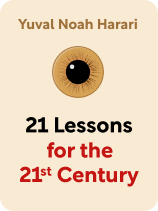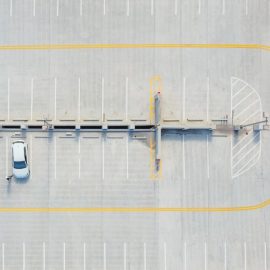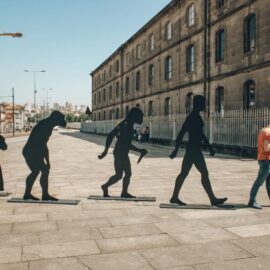

This article is an excerpt from the Shortform book guide to "21 Lessons for the 21st Century" by Yuval Noah Harari. Shortform has the world's best summaries and analyses of books you should be reading.
Like this article? Sign up for a free trial here .
How does technology affect inequality? What can future technology give to the wealthy and take away from the poor?
With the rise of technology, the inequality gap is becoming wider. There’s even speculation that advances in tech will eventually create a useless class, just like mass industrialization created the working class. Making matters worse, developments in biotech could enable wealthy elites to become biologically superior and turn into a separate species.
Keep reading to learn how advances in technology contribute to inequality going forward.
Technology and Inequality: It Goes Beyond Income
With the rise of globalization and advances in technology, inequality was expected to decrease among people all over the world. But the opposite is happening: A small class of the tech elite possesses a huge portion of the world’s wealth, while billions struggle in poverty. If (or when) AI creates a useless class, the gap will widen further. Additionally, when the masses are no longer relevant to the economy, the wealthy elite may be less inclined to provide healthcare, education, and other services.
Making matters worse, developments in biotech could enable wealthy elites to become biologically superior by improving their physical and cognitive abilities and extending their lives. Throughout history, economically elite classes owed their status to good fortune, cultural privileges, and hard work. But if wealthy elites gain biological advantages over the poor—and the poor are pushed out of opportunities to work and gain wealth—it could create a vicious cycle that continually widens the gap between haves and have-nots. Taken to the extreme, bioengineering could eventually turn the rich into a separate species with no need for the underclass of commoners.
Protecting Your Data
In order to prevent the rise of a biologically superior species of wealthy tech elites, governments need to regulate who owns data, which is the most valuable asset of the 21st century. In the past, power belonged to those who owned the most land. Then, machines, factories, and corporations became the most valuable forms of capital. In the digital age, data is king.
Tech companies already profit from collecting and selling consumers’ data. The more that corporations learn about the behaviors of internet users, the more they’ll be able to control those consumers. Soon enough, advertisements could become obsolete—already, when Netflix recommends a movie based on your behavior, you have less need for the movie trailer. As Google, Facebook, and other tech companies learn more about you and deliver recommendations tailored specifically to your preferences, why would you need a commercial?
Convenient as it may be to let Google assist your purchasing choices, the consequences of massive data collection could quickly snowball. In time, people could become increasingly connected to a data collection network, in which devices collect biometric information 24 hours a day. The data could be used to determine your insurance policies, healthcare, or your employment—and if you choose to disconnect, you could risk losing your insurance, healthcare, and job.
The critical question will be: Who owns your data?

———End of Preview———
Like what you just read? Read the rest of the world's best book summary and analysis of Yuval Noah Harari's "21 Lessons for the 21st Century" at Shortform .
Here's what you'll find in our full 21 Lessons for the 21st Century summary :
- What the unique challenges of the 21st century are and will be
- Why religion can't solve these 21st-century challenges
- How algorithms like Netflix recommendations are teaching you not to trust yourself






